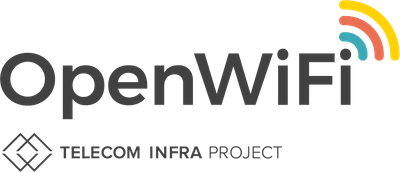 OpenWiFi and the Telecom Infra Project (TIP) are both initiatives that are aimed at improving global connectivity and access to the internet. OpenWiFi is an open source software platform that allows anyone to set up and operate a wireless internet network, while TIP is a consortium of leading technology companies that are working together to create more affordable and efficient infrastructure for telecommunications.
OpenWiFi and the Telecom Infra Project (TIP) are both initiatives that are aimed at improving global connectivity and access to the internet. OpenWiFi is an open source software platform that allows anyone to set up and operate a wireless internet network, while TIP is a consortium of leading technology companies that are working together to create more affordable and efficient infrastructure for telecommunications.
The OpenWiFi platform is designed to make it easy for anyone to set up and operate a wireless internet network, even if they have little to no technical expertise. With OpenWiFi, anyone can use off-the-shelf hardware and open source software to create a wireless network that provides internet access to a wide area.
One of the key advantages of OpenWiFi is that it is open source, which means that anyone can access the source code and make changes or improvements to the platform. This allows the OpenWiFi community to constantly innovate and improve the platform, making it more user-friendly and efficient over time.
Another advantage of OpenWiFi is that it is designed to be scalable, so it can be used to create networks of any size, from small local networks to large-scale networks that cover entire cities or regions. This makes it an ideal solution for providing internet access in remote or underserved areas, where traditional telecommunications infrastructure may be limited or non-existent.
The Telecom Infra Project (TIP) is a consortium of leading technology companies, including Facebook, Intel, Nokia, and SK Telecom, that are working together to create more affordable and efficient infrastructure for telecommunications. TIP was founded in 2016 with the goal of driving innovation and improving access to global connectivity.
One of the key initiatives of TIP is the development of new technologies and solutions that can help to reduce the cost of telecommunications infrastructure. For example, TIP is working on the development of new wireless technologies, such as millimeter wave technology, that can provide high-speed internet access over long distances at a lower cost than traditional wireless technologies.
TIP is also working on the development of new networking technologies, such as software-defined networking (SDN) and network functions virtualization (NFV), that can make it easier and more cost-effective to manage and operate telecommunications networks. These technologies can help to reduce the complexity and cost of telecommunications infrastructure, making it more affordable and accessible to a wider range of users.
In addition to its technical initiatives, TIP also has a number of programs and initiatives aimed at improving access to global connectivity. For example, TIP has a program called OpenCellular that is focused on the development of low-cost, open source cellular network infrastructure. This technology can be used to provide cellular coverage in remote or underserved areas, where traditional cellular networks may be unavailable or unaffordable.
TIP also has an initiative called OpenRAN, which is focused on the development of open source radio access network (RAN) technology. OpenRAN technology can be used to create more flexible and cost-effective RAN networks, which are the networks that connect mobile devices to the internet. This technology can help to reduce the cost and complexity of RAN networks, making it possible to provide internet access to more people in more places.
Overall, OpenWiFi and TIP are both exciting initiatives that are working to improve global connectivity and access to the internet. OpenWiFi is an open source platform that makes it easy for anyone to set up and operate a wireless internet network, while TIP is a consortium of leading technology companies that are working together to create more affordable and efficient telecommunications infrastructure. Together, these initiatives have the potential to make a significant impact on global connectivity, particularly in remote or underserved areas where access to the internet may be limited or non-existent.
One of the key challenges that both OpenWiFi and TIP face is the need to develop and deploy their technologies at a large scale. In order for these initiatives to have a meaningful impact on global connectivity, they need to be able to provide internet access to millions or even billions of people. This will require significant investment in infrastructure, as well as partnerships with governments, telecommunications companies, and other organizations.
Another challenge for OpenWiFi and TIP is the need to continuously innovate and improve their technologies. The field of telecommunications is constantly evolving, and new technologies and solutions are being developed all the time. In order to stay relevant and effective, OpenWiFi and TIP will need to constantly innovate and adapt to the changing landscape.
Despite these challenges, however, both OpenWiFi and TIP have the potential to make a significant impact on global connectivity. By providing easy-to-use, scalable, and affordable solutions for internet access, these initiatives can help to connect more people to the internet, and to each other, than ever before. With the right support and investment, OpenWiFi and TIP could play a crucial role in bridging the digital divide and bringing the benefits of the internet to everyone, everywhere.


